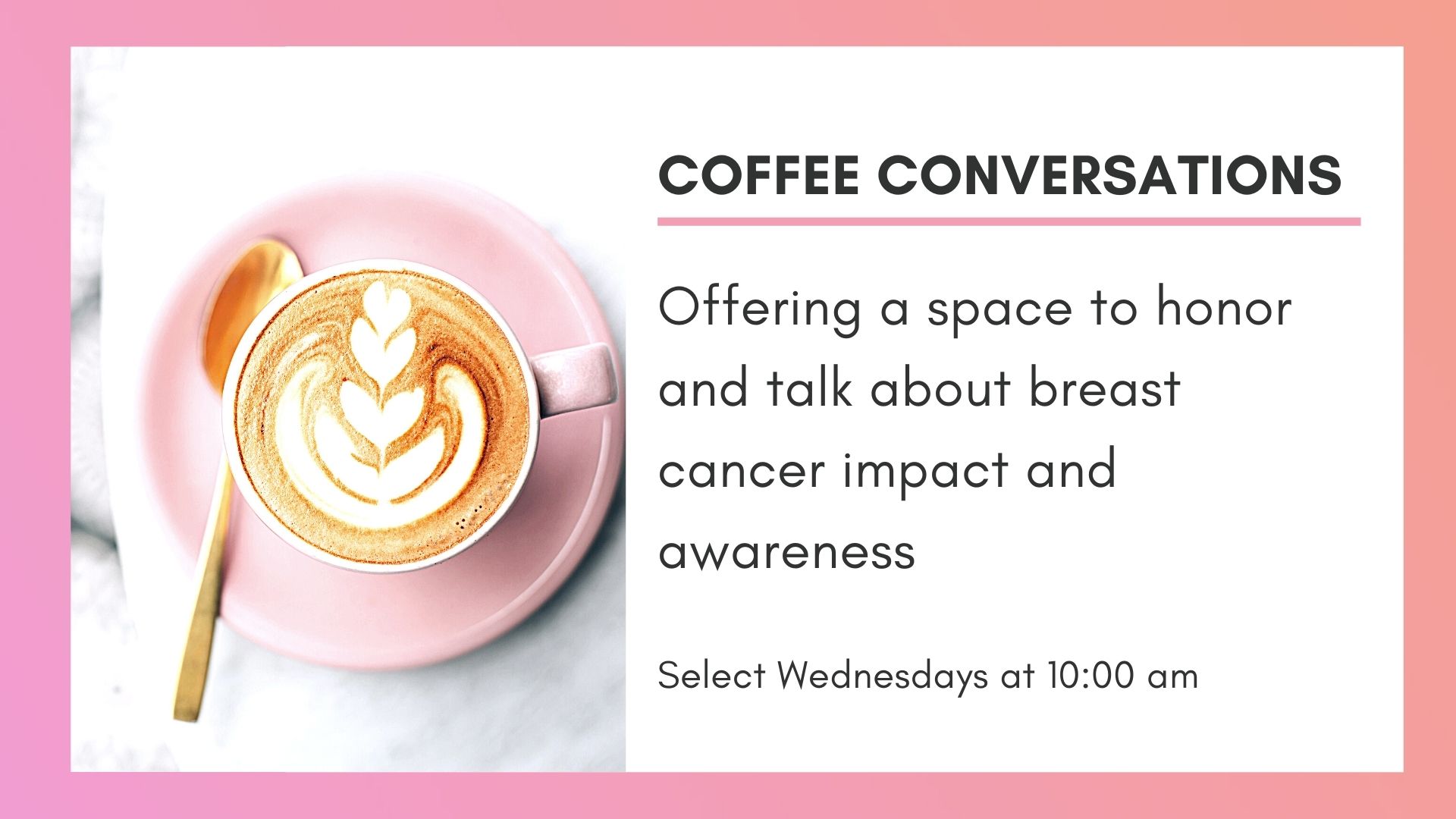If you missed our Coffee Conversation on Massage Therapy never fear! We’ve summarized the conversation below. And, if you’d like to view the entire conversation, click here and head to our YouTube channel to check it and many others out!
About Camille DeSantis
In 2019, Camille was diagnosed with triple-negative breast cancer and received 15 months of treatment, including chemotherapy, lumpectomy, and radiation. Massage, acupuncture, and reiki greatly helped to minimize the side effects of her intense therapy. Camille’s experience with cancer and her knowledge of massage come together as a passion to help other survivors experience relief and achieve a greater quality of life despite cancer. She also hosts a support group for female breast cancer survivors in Mt. Laurel, Alabama that meets on the second Sunday of each month. More information about this group can be found on Forge’s calendar: https://forgeon.org/events/
Camille, why should someone who is interested in massage therapy include their medical team before starting?
Your medical team should be aware of anything that you are hoping to do in your personal life, not just things that are happening medically. Personal decisions may affect you medically so your medical team will help you decide what is and isn’t safe to do, especially when you are in treatment. Your medical team is there to support you, and by informing them about the things you are considering, they will be able to support you as fully as they can.
Your oncology team may also have a referral for a massage therapist who specializes in oncology massage. Any massage therapist you work with should always be educated and informed, maybe even certified in oncology massage.
If you are receiving massage therapy and you notice improvement, like increased range or ease of motion, less swelling, less anxiety, and a positive feeling of being cared for that improves your quality of life, inform your medical team because they could recommend it to others. It could help someone else on their journey.
How can massage therapy be a useful tool for someone in their cancer journey?
The benefits of massage therapy are many and can be beneficial to anyone, not just cancer survivors. These benefits can include increased circulation, reduced swelling, increased ease and range of motion, greater access to your breath as muscles let go and release, and decreased anxiety. Massage is also a supportive, comforting way to be with another human. Often during cancer treatment, you can start to feel like a number, and your life changes dramatically. Kind, compassionate touch felt during a massage can boost quality of life.
For individuals who have surgery, like a lumpectomy or mastectomy, it can cause restriction in movement. Massage can soften scar tissue and get you back to a more normal range of motion. Breast cancer survivors may also face lymphedema, or swelling, in different parts of the body. Lymphatic drainage massage is a specific technique to address this swelling. A physical therapist or massage therapist can be certified in managing lymphedema. Lastly, for those who receive radiation treatment, the effects of radiation can go on for weeks or months after treatment, which can cause soft tissue issues like pain and restricted movement. Working with a massage therapist can bring more blood flow to the area to heal more effectively.
What should someone be mindful of before beginning massage therapy?
Always start by talking with your medical team, especially if you just had surgery or recently started a new treatment regime. When communicating with your massage therapist, it is important to be upfront when making an appointment. They need to be knowledgeable about working with cancer patients and have training so they can answer your questions with confidence.
Touch is safe, and massage can be beneficial to so many, but unless your massage therapist is equipped to manage your unique needs immediately after surgery or treatment, then you may need to wait until you’ve healed or find a massage therapist that is able to make the accommodations you need for a safe and comfortable massage.
Where can someone find a massage therapist in their area?
The easy place to begin is to search “oncology massage” or “oncology massage therapist” online. This may help you find a person near you.
The Society of Oncology Massage has a search tool on their website for finding a therapist who has completed their exam and registered with them. Not every qualified massage therapist has completed this specific training, but you may find someone in your area who has.
Ask your medical provider because, if they are well connected with the community, they may know massage therapists in the area.
Any closing thoughts for those interested in massage therapy?
Consider your own self-care during and after treatment. It is important to make time for ourselves. Treatment is hard, and what treatment does to our bodies is hard. Recovering from treatment is hard. Whether it is massage or taking quiet time with a warm cup of tea, whatever it is for you, make time for it. This self-care can be powerful, and you are worth it.
Resources
NIH (research): https://search.nih.gov/search?utf8=%E2%9C%93&affiliate=nih&query=oncology+massage&commit=Search
Le&RN: https://lymphaticnetwork.org/living-with-lymphedema/find-a-lymphedema-therapist
Massage therapy Foundation – Research: https://massagetherapyfoundation.org/
Camille’s website: https://www.mendingtreemassage.com/
